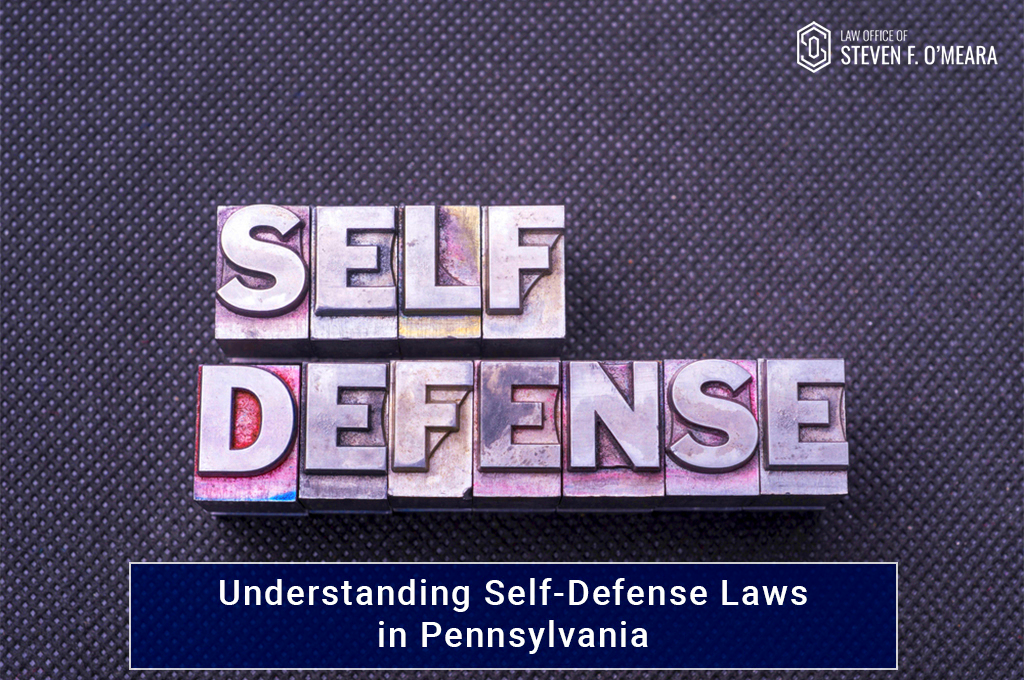Self-Defense Laws in New Hampshire: Key Provisions
Self-defense laws are crucial for understanding your rights and responsibilities when facing a threat. In New Hampshire, these laws provide a framework for individuals to protect themselves legally. It’s essential to know what constitutes self-defense and how it applies in various situations. This blog post will guide you through the key aspects of self-defense laws in the state, helping you grasp your rights when confronted with danger.
Understanding the Right to Self-Defense

The right to self-defense is rooted in the idea that individuals have the right to protect themselves from harm. In New Hampshire, this right allows a person to use reasonable force to defend themselves against an imminent threat. Here are some key points to consider:
- Imminent Threat: The threat must be immediate; you can’t use self-defense against a past threat.
- Reasonable Force: The force used in self-defense must be proportional to the threat faced.
- Intent: Self-defense is justified only if the defender genuinely believes that their safety is at risk.
Understanding these elements helps clarify when self-defense is permissible and helps prevent misuse of this important legal right.
Key Provisions of New Hampshire Self-Defense Laws
New Hampshire has specific provisions governing self-defense, which outline when and how individuals can legally protect themselves. Here are the key provisions:
- Use of Non-Deadly Force: Individuals can use non-deadly force to defend themselves against a threat. This is typically acceptable when the threat is not life-threatening.
- Use of Deadly Force: Deadly force can be used only in situations where a person believes they are facing an imminent threat of serious bodily harm or death.
- Duty to Retreat: New Hampshire does not require individuals to retreat from a situation if they are in a place where they have a legal right to be. This is particularly relevant in confrontations in public spaces.
- Castle Doctrine: Under this doctrine, individuals are not required to retreat from their home when faced with a threat. They have the right to defend their residence.
These provisions create a framework for understanding when self-defense is justified and help protect individuals who act within these legal boundaries.
Justification for Use of Force
Justifying the use of force in self-defense situations can be a complex matter. In New Hampshire, the law recognizes that individuals may need to protect themselves or others from harm. However, this justification hinges on a few critical factors. Understanding these factors can help clarify when the use of force is legally acceptable.
- Imminence of Danger: The threat must be immediate. If there’s time to call for help or escape, the use of force may not be justified.
- Proportionality: The level of force used should match the severity of the threat. For example, using lethal force in response to a non-lethal attack may not be justified.
- Reasonable Belief: The person must have a reasonable belief that they or someone else is in danger. This means that their perception of the threat must be understandable to an average person.
When evaluating self-defense cases, courts will consider whether the individual acted reasonably under the circumstances. This means that even if force was used, it might not be justified if these key elements are not met. Understanding these justifications is crucial for anyone navigating self-defense claims.
Duty to Retreat in Self-Defense Cases
In many states, individuals are required to retreat from a situation before using force. However, New Hampshire has a unique stance on this issue. Understanding the duty to retreat can clarify what individuals are expected to do in self-defense situations.
- No Duty to Retreat: New Hampshire law states that there is no obligation to retreat when you are in a place you have a legal right to be. This means you can stand your ground in a confrontation.
- Public Spaces: This provision applies to public spaces as well as private property. You have the right to defend yourself without retreating if you feel threatened.
- Home Defense: In your own home, you are fully justified in using force without having to consider retreating.
This approach encourages individuals to defend themselves without the fear of legal repercussions for not fleeing a situation. However, it’s still essential to assess the situation carefully to ensure that the response remains reasonable and justified.
Castle Doctrine in New Hampshire
The Castle Doctrine is a legal principle that plays a significant role in self-defense laws, particularly concerning home defense. In New Hampshire, this doctrine provides specific protections for individuals defending their homes.
- Home as a Sanctuary: The law recognizes the home as a person’s castle. You have the right to defend your home against intruders.
- Use of Force: Under the Castle Doctrine, you can use reasonable force, including deadly force, if you believe an intruder poses a serious threat to your safety.
- No Duty to Retreat: Like the general self-defense laws in New Hampshire, the Castle Doctrine eliminates the duty to retreat within your home. You can confront an intruder without the obligation to find an escape route.
This doctrine provides peace of mind for homeowners, reinforcing the idea that individuals have the right to feel safe and secure in their own homes. Knowing your rights under the Castle Doctrine can empower you to protect yourself and your loved ones effectively.
Legal Consequences of Self-Defense
Understanding the legal consequences of self-defense is crucial for anyone considering taking action in a threatening situation. While self-defense is a right, it doesn’t come without potential legal ramifications. Here’s what you need to know about the legal landscape surrounding self-defense in New Hampshire.
- Potential Criminal Charges: Even if you believe you acted in self-defense, you might still face criminal charges. Prosecutors will evaluate the situation to determine if your actions were justified.
- Civil Liability: In addition to criminal charges, you may also face civil lawsuits. The injured party or their family could sue for damages, claiming excessive force was used.
- Burden of Proof: In self-defense cases, the burden of proof can shift. Initially, the prosecution must prove that you did not act in self-defense. However, if you present evidence supporting your claim, the burden may shift back to them.
- Legal Fees and Representation: Engaging in a self-defense case often involves significant legal costs. It’s important to have a qualified attorney to navigate the complexities of your case.
Being aware of these potential consequences can help you make informed decisions about how to act in self-defense situations. Always remember that the legal landscape can vary based on the specifics of each case.
Common Misconceptions about Self-Defense Laws
Self-defense laws are often surrounded by myths and misunderstandings. Clearing up these misconceptions is essential for anyone wanting to understand their rights. Here are some of the most common myths:
- Self-Defense Means No Consequences: Many believe that if they claim self-defense, there will be no legal repercussions. This is not true; self-defense must be justified and reasonable.
- All Force is Acceptable: Some think they can use any amount of force in self-defense. However, the law requires that the force be proportional to the threat.
- Self-Defense Applies Anywhere: While New Hampshire allows individuals to stand their ground, self-defense laws vary by location. It’s essential to know the specific laws in your area.
- Retreat is Always Required: Unlike many states, New Hampshire does not require individuals to retreat before using force. Understanding this unique aspect can prevent unnecessary confusion.
Being aware of these misconceptions helps individuals better understand their rights and responsibilities when it comes to self-defense.
FAQs about Self-Defense Laws in New Hampshire
Self-defense laws can be confusing, and many people have questions about how they apply in specific situations. Here are some frequently asked questions to help clarify your understanding:
- What is considered reasonable force? Reasonable force is that which is proportional to the threat you face. For example, using physical force to prevent a punch is reasonable, but using a weapon might not be.
- Do I have to prove I acted in self-defense? Yes, while the burden of proof starts with the prosecution, you may need to present evidence supporting your claim of self-defense.
- Can I use force to protect someone else? Yes, New Hampshire law allows for the use of reasonable force to protect another person if you believe they are in immediate danger.
- What if I was the initial aggressor? If you initiated the conflict, claiming self-defense can be more complicated. However, if you can show that you were threatened, you might still have a valid claim.
These FAQs can help demystify self-defense laws in New Hampshire and empower individuals to make informed decisions about their rights.
Conclusion on Self-Defense Laws
Understanding self-defense laws in New Hampshire is vital for anyone looking to protect themselves or others in potentially dangerous situations. These laws provide a framework that allows individuals to act in self-defense while also establishing boundaries to prevent misuse. It’s essential to recognize the nuances of the law, such as the justification for using force, the absence of a duty to retreat, and the Castle Doctrine’s provisions. By being informed about these legal principles, individuals can better navigate self-defense scenarios, ensuring they act within the law while safeguarding their rights. Always consult with a qualified attorney if you find yourself in a situation involving self-defense, as legal outcomes can significantly depend on the specifics of each case.


